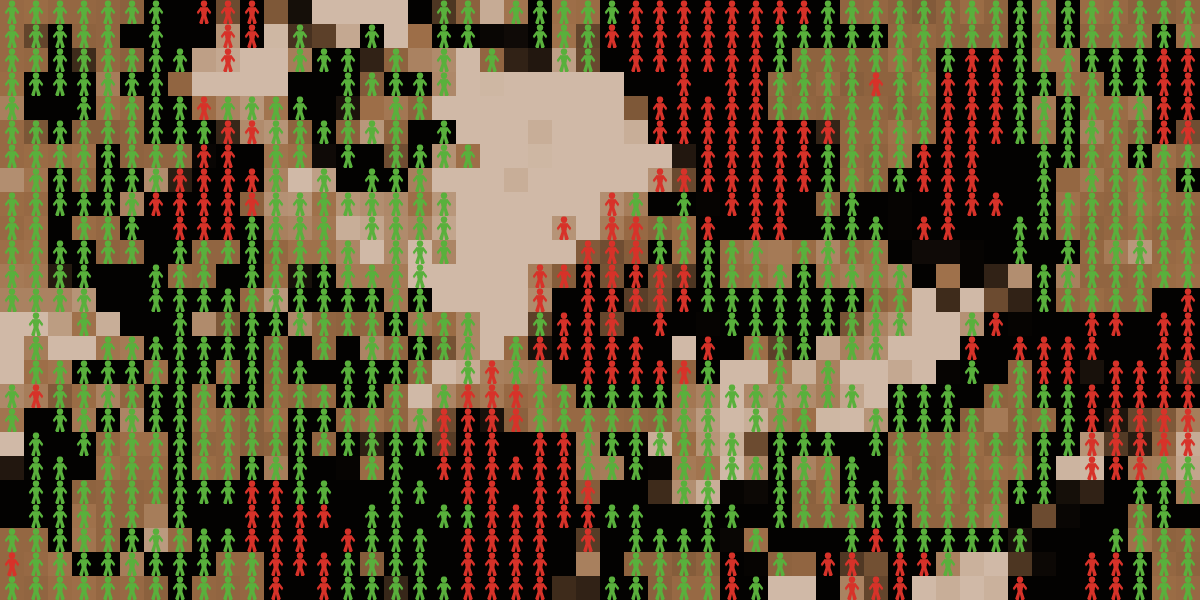
NetLogo: Evolution of resource use through behavior imitation
This model adds cultural evolutionary dynamics through behavior imitation to the evolution of resource use behavior.
This NetLogo model lets students explore how competition for resources can affect the evolution of a population and can result in resource overuse. This model is similar to the model Evolution and competition for forest resources, but more abstract.
The model simulates the use of a renewable resource by an evolving agent population. Agents can differ in their resource consumption traits – sustainable/low harvest behavior or greedy/high harvest behavior. The agents move to patches with the most resources in their neighborhood and harvest from the patches. The harvested resources equal the energy available to an agent, and agents expend energy to survive. The energy of an agent affects the chance of producing an offspring (through asexual reproduction). Offspring may mutate and have a different resource consumption trait variant than parents. Agents compete for both resources and space. In the world, the population dynamics and distributions of agents and resources can be observed.
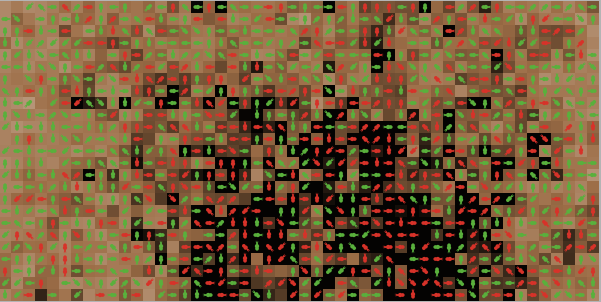

This model adds cultural evolutionary dynamics through behavior imitation to the evolution of resource use behavior.
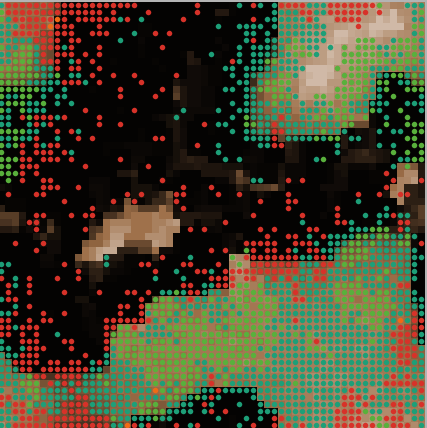
This model lets us explore how the appearance of certain social behaviors can affect evolutionary population dynamics.
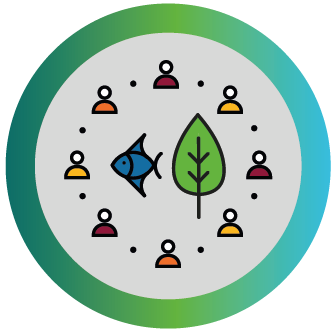
In a classroom simulation game with changing conditions students develop strategies for the use of a common resource so that the profit for the entire group is maximized.
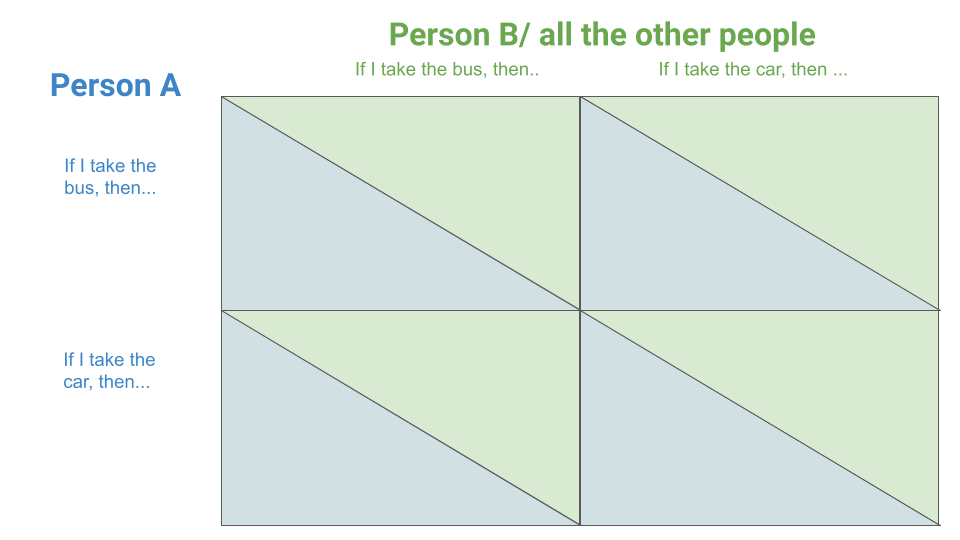
Students reflect on the causes and consequences of human behaviors in situations of social interactions, and are introduced to the payoff matrix as a helpful tool to represent motivations and outcomes of behaviors.
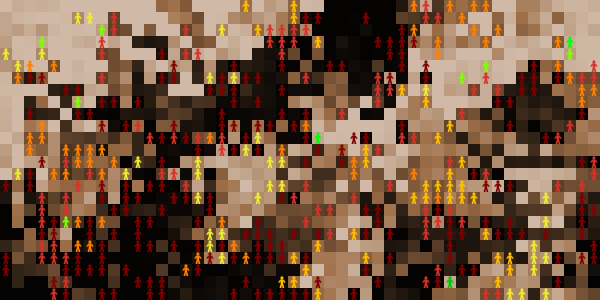
This model introduces the concept of resource use efficiency into the evolution of resource use behavior.
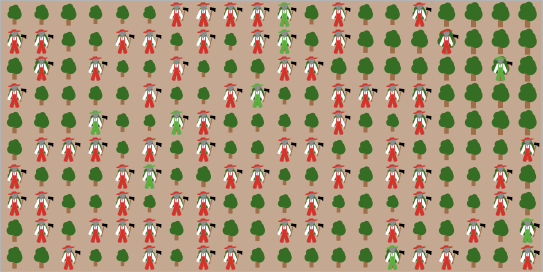
This NetLogo model builds on the model of Two Foresters. In this model, agents reproduce based on the amount of resources that they harvest.
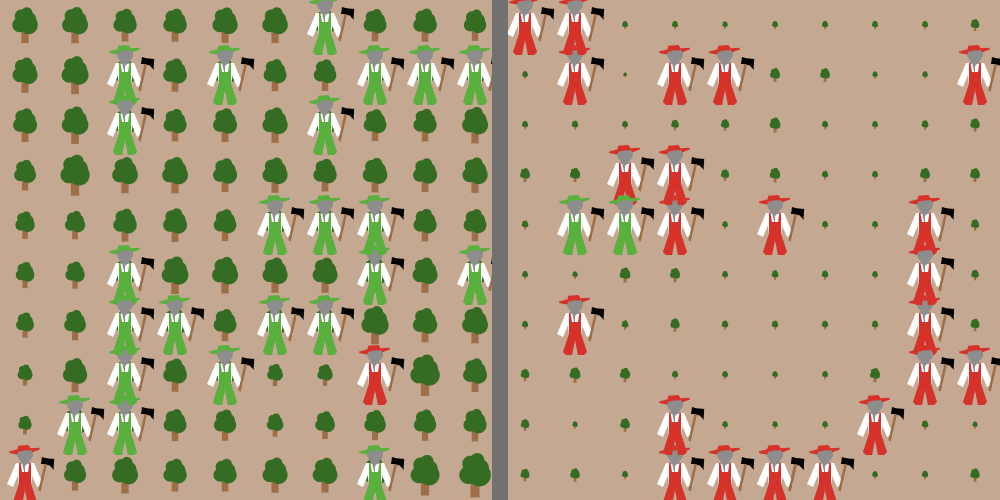
This NetLogo computer model extends the model Two Foresters and introduces a bigger and more complex population structure

An interactive introduction into concepts of ecology, behavioral ecology, and sustainability with a computer simulation of a simple social-ecological system.
OpenEvo is an educational innovation project from the Department of Comparative Cultural Psychology at the Max Planck Institute for Evolutionary Anthropology.
Evolve the future of education with us!